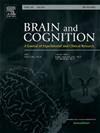Negative life events during early adolescence are associated with neural deactivation to emotional stimuli
IF 1.4
3区 心理学
Q3 NEUROSCIENCES
引用次数: 0
Abstract
Negative life events (NLEs) have been shown to perturb neurodevelopment and are correlated with poor mental health outcomes in adolescence, the most common period of psychopathology onset. Emotion regulation is a critical component of psychological response to NLEs and interacts, neurobiologically and behaviorally, with working memory. This study leveraged an emotional n-back task to examine how NLEs influence emotion- and working memory-related brain activation using data from 2150 youth in the Adolescent Brain Cognitive Development (ABCD) Study. Greater incidence of NLEs was associated with less activation in the amygdala and more pronounced deactivation in other limbic and frontal brain regions previously implicated in emotion-related cognition; however, this association was present only during emotion processing conditions of the task. While NLEs were not significantly associated with task performance in the final sample, behavioural analyses including youth excluded for low task accuracy and poor neuroimaging data quality showed a significant negative association between NLEs and overall task performance. While behavioural findings across the entire sample support prior work, somewhat incongruent with prior literature, imaging results may suggest that during early adolescence the effects of negative experiences on patterns of neural activation are specific to contexts necessitating emotion processing.
青少年早期的负面生活事件与神经对情绪刺激的失活有关
负面生活事件(NLEs)已被证明会扰乱神经发育,并与青春期(精神病理发病最常见的时期)的不良心理健康结果相关。情绪调节是NLEs心理反应的重要组成部分,并与工作记忆在神经生物学和行为上相互作用。本研究利用青少年大脑认知发展(ABCD)研究中的2150名青少年的数据,利用情感n-back任务来研究NLEs如何影响与情绪和工作记忆相关的大脑激活。NLEs的发生率越高,杏仁核的激活程度越低,先前与情绪相关认知有关的其他大脑边缘和额叶区域的失活程度越明显;然而,这种关联仅在任务的情绪处理条件下存在。虽然在最后的样本中,NLEs与任务表现没有显著关联,但行为分析(包括因任务准确性低和神经成像数据质量差而被排除在外的青少年)显示,NLEs与整体任务表现之间存在显著的负相关。虽然整个样本的行为研究结果支持先前的工作,但与先前的文献有些不一致,但成像结果可能表明,在青春期早期,负面经历对神经激活模式的影响是特定于需要情绪处理的环境的。
本文章由计算机程序翻译,如有差异,请以英文原文为准。
求助全文
约1分钟内获得全文
求助全文
来源期刊

Brain and Cognition
医学-神经科学
CiteScore
4.60
自引率
0.00%
发文量
46
审稿时长
6 months
期刊介绍:
Brain and Cognition is a forum for the integration of the neurosciences and cognitive sciences. B&C publishes peer-reviewed research articles, theoretical papers, case histories that address important theoretical issues, and historical articles into the interaction between cognitive function and brain processes. The focus is on rigorous studies of an empirical or theoretical nature and which make an original contribution to our knowledge about the involvement of the nervous system in cognition. Coverage includes, but is not limited to memory, learning, emotion, perception, movement, music or praxis in relationship to brain structure or function. Published articles will typically address issues relating some aspect of cognitive function to its neurological substrates with clear theoretical import, formulating new hypotheses or refuting previously established hypotheses. Clinical papers are welcome if they raise issues of theoretical importance or concern and shed light on the interaction between brain function and cognitive function. We welcome review articles that clearly contribute a new perspective or integration, beyond summarizing the literature in the field; authors of review articles should make explicit where the contribution lies. We also welcome proposals for special issues on aspects of the relation between cognition and the structure and function of the nervous system. Such proposals can be made directly to the Editor-in-Chief from individuals interested in being guest editors for such collections.
 求助内容:
求助内容: 应助结果提醒方式:
应助结果提醒方式:


